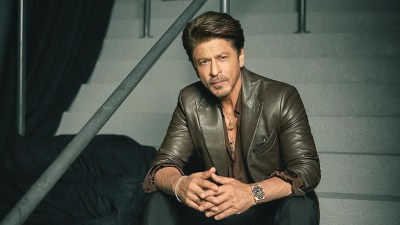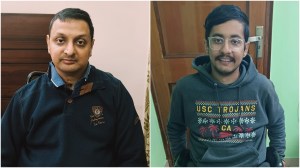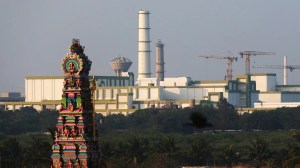Two countries and a take-off
The high level of political trust between India and Russia needs to be translated into economic cooperation says Nivedita Das Kundu

Russian President Vladimir Putin8217;s recent visit to India provided fresh impetus to the strategic partnership between India and Russia. The visit reinforced the interests of both states in maintaining their traditionally close and friendly relationship. But the question remains 8212; did this visit provide similar impetus to Indo-Russian trade and economic cooperation?
Today India and Russia have reached a stage where both their economies are resurgent and also at the same time diversifying. Over the last few years they have achieved significant rates of economic growth. In the past years, the Indian economy grew by more than 7 per cent per year and the Russian economy by 6.9 per cent. Overall, both economies are developing significantly to provide a strong base for expanding business contacts and promoting new projects.
Nonetheless, in spite of accelerated growth and immense opportunities in each other8217;s economies, statistics show that Indo-Russian trade in 2005-06 was only 2.75 billion. Promises were made by the leaders of both the countries to boost trade and set the target of 10 billion by 2010. But the Indian business community feels that to put these words into practice and strengthen the economic pillar of the relationship, certain practical issues and concerns need to be addressed, like the easing of visa regulations for Indian businessmen, optimising the Indo-Russian shipment route, the expansion of inter-banking cooperation and the issue of utilising the remaining funds under the rupee-rouble debt agreement.
During his visit to India, Putin emphasised that there can be no effective economic cooperation without political support, and suggested that the high level of political trust between the two countries needs to be translated into economic cooperation. He stressed upon the need for both governments to cut the red tape and provide initiatives to boost economic cooperation. He also articulated the point that both countries are market-oriented economies today and therefore need to make greater efforts to conquer each other8217;s markets. For his part, though, he promised to put in place the conditions for easing the entry of Indian businesses into the Russian market even in non-traditional sectors.
Against the backdrop of the Goldman Sachs BRIC report, which states that the emerging economies of Brazil, Russia, India, and China will increase their footprints on the global economic landscape in the 21st century, it is evident that the Indo-Russian economic and trade engagement needs a significant boost. Present economic engagements are mostly in the public sector and even here they are focused mainly on the defence sector. Military ties between India and Russia are developing steadily and today it includes joint research and development, production, marketing, regular cooperation between the different branches of arms and joint training exercises.
In spite of such notable defence cooperation, there is a need to develop an institutional mechanism that could link institutions and thereby spur innovation as well as commercialisation of new technologies. Economic and investment projects also need serious information support, which is lacking at the moment. On the whole, it is necessary to publicise the positive experiences and growth of both countries, which will help people in both the states to orient themselves according to present realities and also boost bilateral economic cooperation.
The macro-economic stability and growth in the Russian and Indian economies continued mainly because of their intensive expansion of internal consumer and investment demand. Overall, both the governments8217; economic policy is aimed at supporting the macroeconomic equilibrium and stimulating growth. Today Russia8217;s ambition seems to be not just limited to becoming a prime supplier of energy to the world market but to eventually re-emerge as a great economic power. Similarly, today8217;s India has also got a lot to offer Russia. Together they can come up with bright new initiatives to boost economic cooperation and emerge as economic leaders in the 21st century!
Now India and Russia8217;s relationship has reached a stage where any change in the leadership in either country or closeness with any other country would not make much of a difference to the partnership. But, as far as the trade and economic cooperation is concerned, it seems both countries have to go a long way to re-establish strong cooperation to bring back the close Soviet era trade and economic relationship. The timing of the forthcoming Indo-Russian summit of the Business Cooperation Council, and the Trade and Investment Forum, which took place on February 13 in New Delhi, was significant as it took place after recent summit level talks between India and Russia. This definitely symbolises that at present both the countries are looking towards a new synergy.
The writer is associate fellow, IDSA, New Delhi
- 01
- 02
- 03
- 04
- 05































